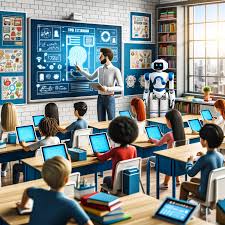Exploring the Awareness and Challenges Faced by Basic Stage Teachers in Integrating Nanotechnology into Education
Main Article Content
Abstract
This study examined the level of knowledge basic stage teachers possess regarding the use of nanotechnology in education and the challenges they face in integrating it into classroom practices. A descriptive design was employed, and data were collected from a reliable online questionnaire administered to a simple random sample of 100 teachers in basic stage schools in Amman, Jordan. The study focused on two main questions: (1) the extent of teachers’ awareness of nanotechnology tools, and (2) the challenges encountered in their application.
The findings showed that teachers in private schools demonstrated relatively higher awareness of nanotechnology tools compared to those in public schools and expressed greater willingness to incorporate these tools into their teaching practices. However, several obstacles were identified, including limited resources, lack of hands-on training, and practical constraints within classrooms, which were the main barriers to effective integration of nanotechnology.
Based on the results, the study recommends organizing targeted workshops and training programs to equip teachers with practical skills for using nanotechnology tools in classroom settings. Furthermore, allocating sufficient resources is essential to address the identified challenges and support the effective integration of nanotechnology in basic stage education.
Downloads
Article Details
Issue
Section

This work is licensed under a Creative Commons Attribution-NonCommercial-NoDerivatives 4.0 International License.
References
Al-Nawaiseh, S. J., Alkasasbeh, W., & Al-Said, K. (2025). The effectiveness of using graphic design programs in enhancing visual thinking skills among educational technology students in Jordan. International Journal of Innovative Research and Scientific Studies, 8(1). https://doi.org/10.53894/ijirss.v8i1.4637
Al-Nawaiseh, S. J., Tabieh, A. A., Maqableh, W. F., Altawalbeh, M., & Ahmad, F. B. (2024). The effectiveness of using educational robots in enhancing engineering mathematics skills among students in basic school. International Journal of Education and Practice, 12(3), 906-921.
Al-Qahtani, Z. J. (2022). The level of awareness of mathematics teachers in general education stages of nanotechnology concepts. Journal of the Faculty of Education, Tanta University, 88(5), 1488–1523. https://doi.org/10.21608/mkmgt.2023.174556.1403.
Al-Qubati, A. G. M. A. H., & Al-Hakimi, D. I. H. A. (2022). Evaluation of the ninth-grade science textbook in the Republic of Yemen in light of nanotechnology concepts. Journal of Educational Sciences and Human Studies, (27), 505–540. https://doi.org/10.55074/hesj.v0i27.615
Bani Ahmad, F., Al-Nawaiseh, A. J., & Al-Nawaiseh, S. J. (2025). The effectiveness of artificial intelligence applications in developing self-awareness skills among students of the basic stage. International Journal of Innovative Research and Scientific Studies, 8(2). https://doi.org/10.53894/ijirss.v8i2.5769
Blonder, R., Parchmann, I., Akaygun, S., & Albe, V. (2014). Nanoeducation: Zooming into Teacher Professional Development Programmes in Nanoscience and Technology (pp. 159–174). Springer Netherlands. https://doi.org/10.1007/978-94-007-7281-6_10
Darmawansah, D., Hwang, G.-J., Chen, M.-R. A., & Liang, J.-C. (2023). Trends and research foci of robotics-based stem education: A systematic review from diverse angles based on the technology-based learning model. International Journal of stem Education, 10(1), 1-24. https://doi.org/10.1186/s40594-023-00400-3
Firdausi, N., Fithriyah, N. N., Ummah, R., Abidin, Moh. A., Nirwana, R., Achmad, W., & Kuswanto, F. (2024). Integrating Smart Education in Basic Education: A Systematic Review of Roles and Challenges. 1–6. https://doi.org/10.1109/iciss62896.2024.10751462
Gamishidze, Z. (2025). Teaching the Basics of Nanotechnology in School. The Eurasia Proceedings of Educational & Social Sciences, 41, 99–105. https://doi.org/10.55549/epess.901
Ge, J., Hong, Y., Zeng, R., Li, Y., & Habibi, M. (2023). Increasing the attractiveness of physical education training with the involvement of nanotechnology. Advances in Concrete Construction, 16 (6), 291–302. https://doi.org/10.12989/ACC.2023.16.6.291.
https://doi.org/10.1080/02635143.2019.1631783
https://ideas.repec.org/a/pkp/ijoeap/v12y2024i3p906-921id3768.html
Hussein Ahmed, S. G. (2020). A proposed unit in nanotechnology based on differentiated instruction strategies to develop scientific literacy and motivation toward learning science among preparatory school students with different learning styles. Journal of Scientific Research in Education, 21(15), 356–382. https://doi.org/10.21608/jsre.2021.146891.
Ipek, Z., Atik, A. D., TAN, Ş., & Erkoc, F., (2020). Awareness, exposure, and knowledge levels of science teachers about nanoscience and nanotechnology. ISSUES IN EDUCATIONAL RESEARCH ,30(1), 134-155.
Jones, M. G., Blonder, R., Gardner, G. E., Albe, V., Falvo, M. R., & Chevrier, J. (2013). Nanotechnology and Nanoscale Science: Educational challenges. International Journal of Science Education, 35(9), 1490–1512. https://doi.org/10.1080/09500693.2013.771828
Jones, M. G., Blonder, R., Gardner, G. E., Albe, V., Falvo, M. R., & Chevrier, J. (2013). Nanotechnology and Nanoscale Science: Educational challenges. International Journal of Science Education, 35(9), 1490–1512. https://doi.org/10.1080/09500693.2013.771828
Mandrikas, A., Michailidi, E., & Stavrou, D. (2019). Teaching nanotechnology in primary education. Research in Science & Technological Education, 38(4), 377–395.
Mandrikas, A., Michailidi, E., & Stavrou, D. (2020). Teaching nanotechnology in primary education. Research in Science & Technological Education, 38(4), 377–395. https://doi.org/10.1080/02635143.2019.1631783
Muhammad Ahmed Eid, S. (2021). Proposed Program in Nanoscience and Technology (NST) for Developing Critical Thinking Skills and Awareness of Nanotechnology Issues and Its Biological and Environmental Applications Among Science Teacher Students. Journal of Faculty of Education- Assiut University, 37(12.2), 379-437. Doi:10.12816/mfes.2021.223588.
Schmidt, D. L. (2020). Nanotechnology and education. Women in Nanotechnology: Contributions from the Atomic Level and Up, 29-41. https://link.springer.com/book/10.1007/978-3-030-19951-7
Senocak, E., Ozdemir, T., Yilmaz, F., Tayhan, Y., & McNally, H. A. (2021). A nanoscience and nanotechnology educational program for high school students: examination of preliminary trials. Journal of Materials Education, 43(1-2), 93-108.
Spyrtou, A., & Manou, L., & Peikos, G. (2021). Educational Significance of Nanoscience–Nanotechnology: Primary School Teachers’ and Students’ Voices after a Training Program. Education Sciences. 724-752. https://doi.org/10.3390/educsci11110724

